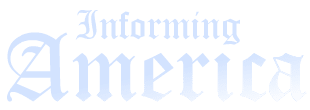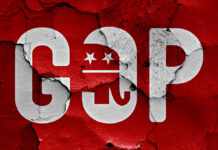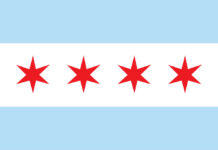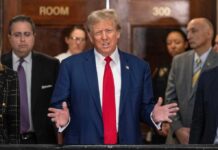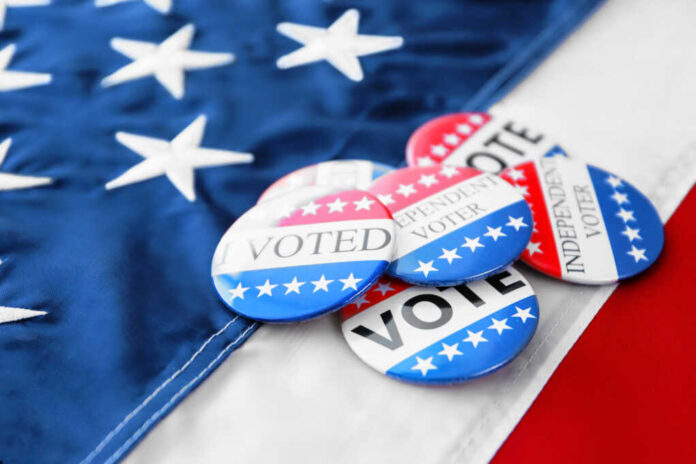
The group ‘No Labels’ announced this week that it would field a third-party candidate to run against President Joe Biden and former President Donald Trump. The move comes as polling has consistently shown that adding more candidates to November election polls has been increasing the lead of the former president on average.
The organization decided on Friday that it would field candidates for president and vice president.
The organization has not declared who the candidates may be, but others have turned down the potential role. This included former South Carolina Gov. Nikki Haley (R) and former Maryland Gov. Larry Hogan (R). Current Sen. Joe Manchin (D-WV) also stated that he would not run for president.
The group has stated that it did not support the candidacies of either Biden or Trump. Statements from the group indicate that the ticket would include a Democrat and a Republican as the candidates.
Former Georgia Lt. Gov. Geoff Duncan (R), who clashed with Trump after the 2020 election, is one of the potential candidates under consideration.
🇺🇸@Mike_Rawlings: “Let‘s talk about common sense issues. Let‘s get common sense leadership. Let‘s take accountability in this country as opposed to pointing fingers and playing the blame game. Let‘s stand up and let‘s say what we‘re going to do for America and this future.” pic.twitter.com/01hPuUMSqp
— No Labels (@NoLabelsOrg) March 9, 2024
The No Labels group includes a number of Republican and Democratic officials and former officials.
Founding co-chair of the organization, former Sen. Joe Lieberman (I-CT) said that a race between Trump and Biden was “not good” for the country. He also said that the group was at the “moment of truth.”
The former senator said that the group would only put up a candidate if there was a realistic shot of winning.
Polls have shown that including Kennedy and independent candidate Professor Cornel West have helped Trump in the polls. Most national polls show Trump with a small but significant lead over Biden in a head-to-head matchup.
However, when other candidates are added, they appear to take more support from Biden than from Trump. This usually results in increases in the former president’s lead.
The news also comes as Kennedy has received increased attention in recent weeks. The independent candidate purchased a commercial during the Super Bowl and extended ballot access to several new states.
